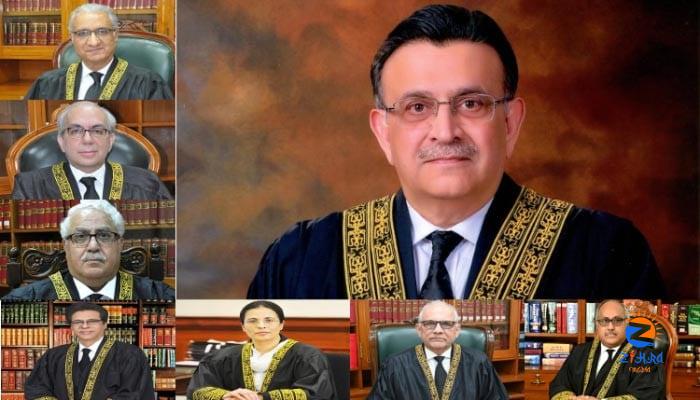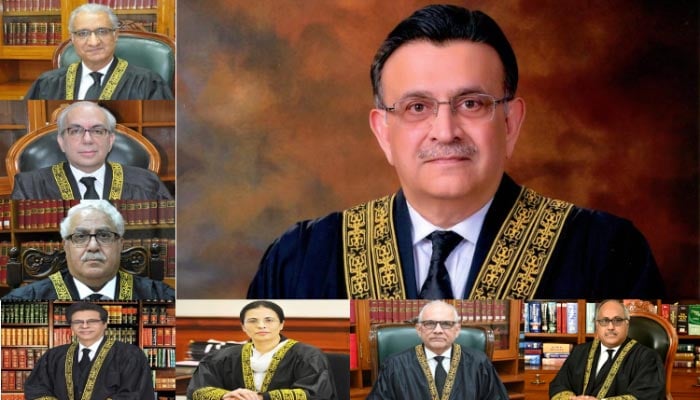
[ad_1]
The Supreme Court resumes hearing on a set of pleas filed against a bill curtailing the powers of the top judge to initiate suo motu proceedings or form benches today (Monday).
An eight-judge bench takes up the pleas that heard them earlier. It comprises Chief Justice of Pakistan (CJP) Umar Ata Bandial, Justice Ijazul Ahsan, Justice Munib Akhtar, Justice Sayyad Mazahar Ali Akbar Naqvi, Justice Muhammad Ali Mazhar, Justice Ayesha Malik, Justice Syed Hasan Azhar Rizvi and Justice Shahid Waheed.
In the last hearing, CJP Bandial had turned down the attorney general’s plea to withdraw the stay order restricting the implementation of the Supreme Court (Practice and Procedure) Bill 2023, which the top court had passed on April 13.
“Our stay order of the last hearing is in place. Law related to the Supreme Court rules are very clear,” the chief justice had said.
Meanwhile, a request for the constitution of a full court and removal of some judges from the bench, for hearing the case had also been made during the last hearing.
While adjourning the hearing till today, CJP Bandial directed all parties in the case to submit written arguments in the case, and also sought the record of the debate held in the Parliament and standing committee on judicial reforms.
Chronology of events
On March 28, parliament passed the bill, aimed at curtailing the unbridled powers of the chief justice. The bill restricts the chief justice’s powers to take suo motu notices as well as to constitute benches on his own.
Instead, it stipulates that these powers will be vested in a three-member committee, comprising the chief justice and two-senior most judges.
However, President Arif Alvi returned the bill back to parliament on April 8, without giving his assent. Subsequently, the lawmakers passed the bill again on April 10 in a joint session and resent it to the president.
As per the country’s law, the president has 10 days to give his assent to a bill passed by a joint sitting of the Senate and National Assembly. However, even if the president does not give his assent, the bill automatically becomes a law and takes effect after that period, which in this case was April 20.
To prevent the bill from taking effect, three petitions were filed in the top court which will be heard for the third time today.
[ad_2]
